In the Old Town of Vilnius, on the corner of Rūdininkai Square, stands a gentleman in a straw hat with pleasant-looking eyes. This is Dr Tsemakh Shabad, a kind-hearted physician, who cared for even the poorest patients and their pets. He was a famous early 20th-century public figure, and the person who introduced hygiene to Vilnius.
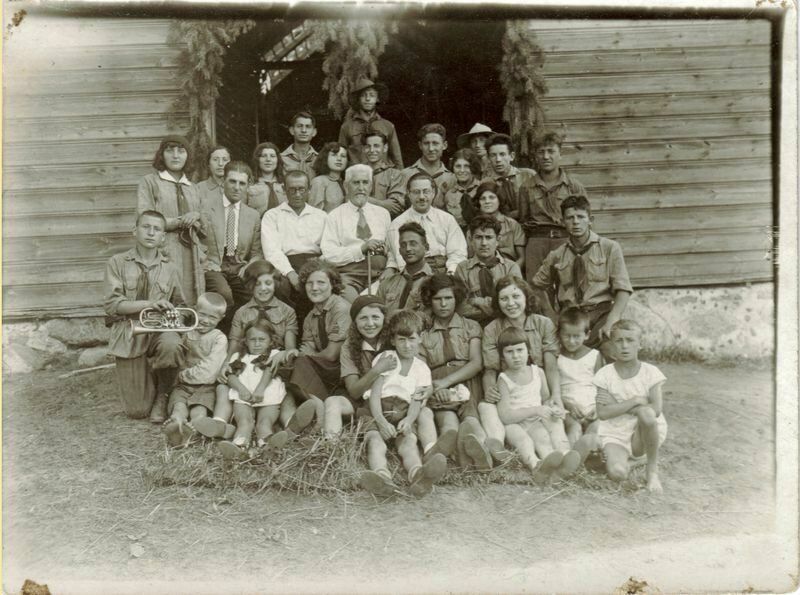
There was already a modern Jewish hospital in Vilnius in the late 19th and early 20th century when Dr Shabad began his work. It had pediatric and gynaecological departments, a maternity ward, an operating theatre, and departments for infectious diseases, gastroenterology, diseases of the eye, and psychiatry. In one year, the hospital treated about 1,500 in-patients, and 12,000 out-patients. The Jewish community also had a strong support organisation for the sick called Mishmeres Khoilim, which later opened a special hospital.
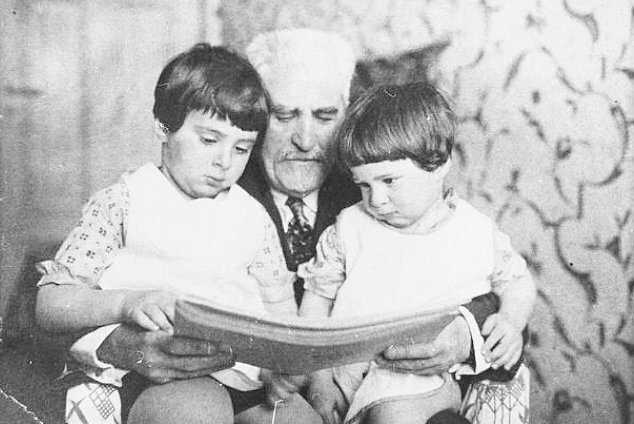
Despite this, sanitary and hygiene conditions in the city were very poor: people lived in cellars, children did not get enough fresh air and sun, and only 2.3 per cent of households had running water. The infant mortality rate among children up to one year old in Jewish families was 38 per cent. Dr Shabad realised that medicines and operations alone could not improve the situation, and undertook to educate society and improve hygiene conditions. But let us return to the beginning. Tsemakh Shabad was born in Vilnius in 1864, and lived most of his life in his native town. His parents were third-generation residents of the city. They engaged in trade with Moscow, and took part in and constantly supported Jewish social activities. They supported schools, and tried to give their seven children the best education possible. When Tsemakh was a teenager, the whole family moved to Moscow, where he completed his secondary education and went on to qualify as a doctor. After he started practising, Dr Shabad visited the poorer quarters, and worked with low-paid workers in a special hospital. That was probably when his interest in sanitation and hygiene was born.
Tsemakh Shabad returned to work in his native Vilnius. But there, even in the presence of hospitals and advanced doctors, the financial situation, nutrition and hygiene of many people were poor. Besides working in hospitals, Shabad began to delve into social medicine. Hunger and poverty was not the only cause of disease spread, he said. The doctor managed to teach people the basic rules of hygiene.
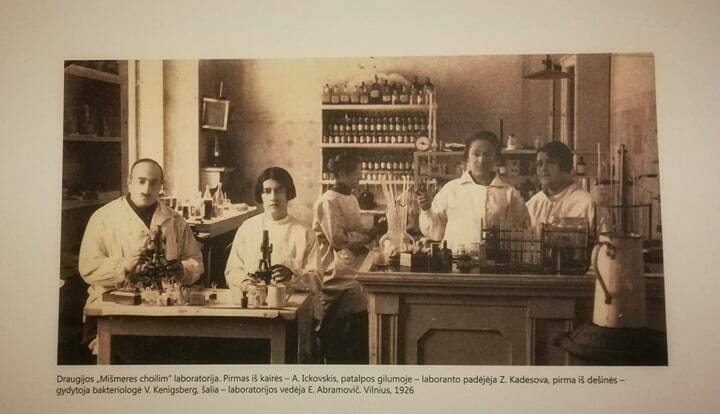
Tsemakh Shabad worked in Vilnius and was engaged in many activities, thus becoming a famous and highly respected person. After being imprisoned for anti-tsarist acts and sentenced for three years in exile, the government had to release him due to public pressure — he was “deported” to Western Europe for a while.
After the trip, he returned to Vilnius and continued working to improve public health. He considered science and well-being as the most effective means of fighting epidemics, whereas ignorance of how to prevent them was the cause of diseases. Tsemakh Shabad created schools and shelters, wrote scientific and popular articles, researched tuberculosis, cholera, nervous, heart and circulatory system diseases, published magazines and collaborated with the press. He founded, supported and participated in sports, historical and cultural societies.
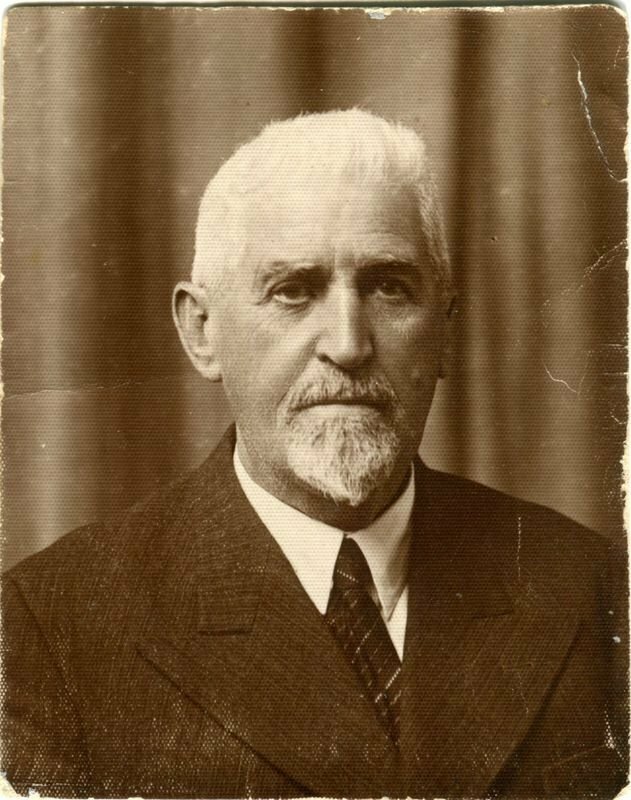
He met the most famous people of that time, such as Max Weinreich, Ivan Sechenov, Sigmund Freud and Albert Einstein. Even after writing well-perceived articles known in distant countries, Dr Tsemakh Shabad never refused to see his patients even late at night or under terrible weather conditions. He never took money from the poor because he thought a doctor was first and foremost — a man. And in Vilnius, we know him not only as a famous doctor and a public figure, but also as an elderly grandfather of good heart with a stick in his hand, talking to a poor girl and her kitten.
During Tsemakh Shabad’s funeral in January 1935, city shops were closed, and more than 30,000 people took part in the march through Gediminas Avenue, Vilnius and Vokiečių streets in Vilnius city centre.
====
Here is the route to visit the most important places related to Cemach Shabad:
- Monument dedicated to Dr Tsemakh Shabad (Mėsinių and Dysnos street intersection)
Sculpture “Doctor Oh-It-Hurts” (2007) by Romualdas Kvintas is in the native Dr Shabad’s Mėsinių street. You can hug the doctor and take a picture with him: here he is just an ordinary citizen in an Old Town street, willing to have a conversation about health, news or politics.
The native Shabad family house did not survive. According to historians, it was at the other end of Mėsinių street close to Stiklių street.
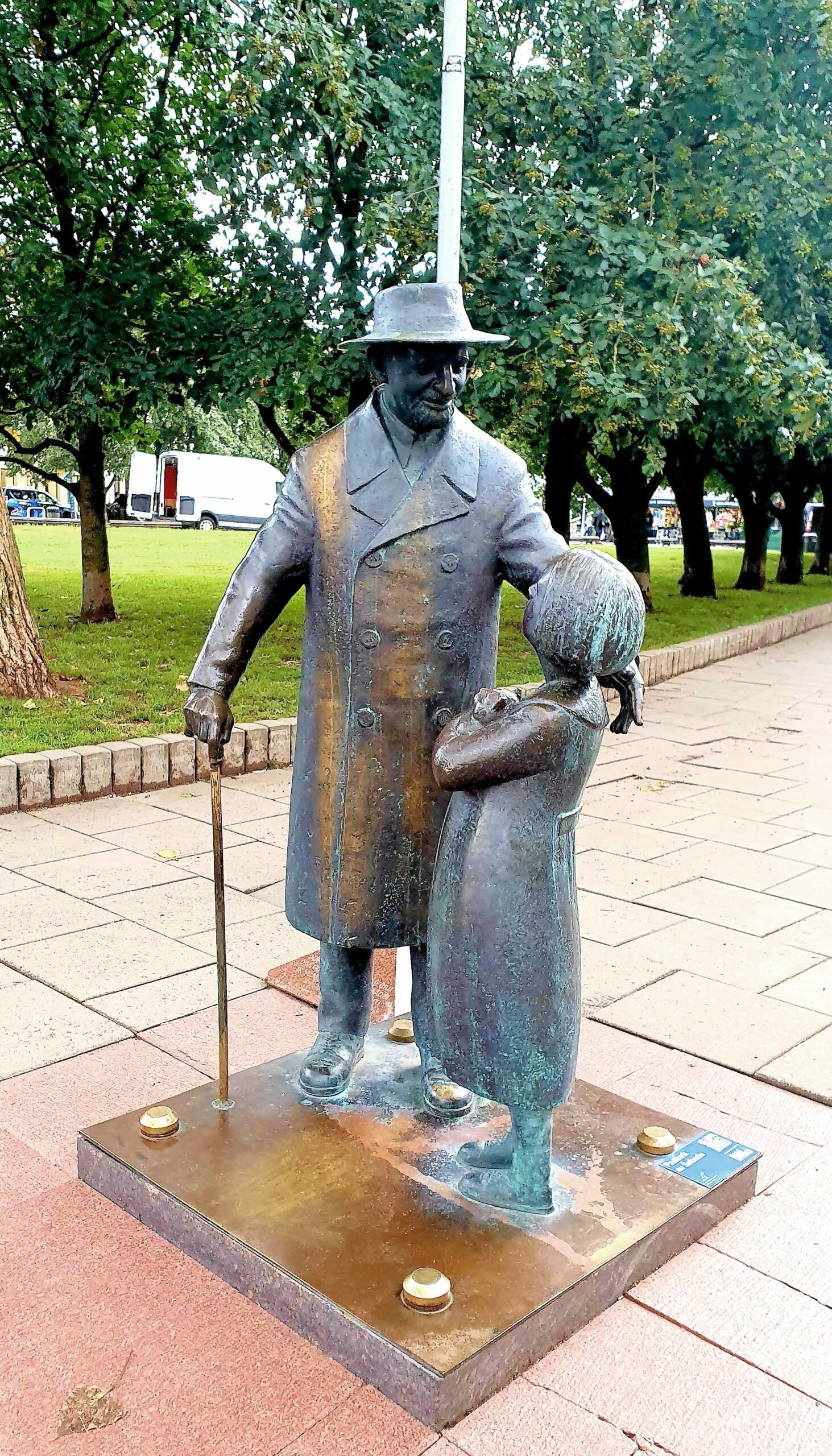
2. Former Jewish hospital (Ligoninės str. 1), where Tsemakh Shabad worked after his studies abroad.
There were departments for treating children’s and women’s diseases, internal and infectious complications; there were childbirth and surgery rooms. Patients got treatments for mental illnesses and other diseases. The hospital received about 1,500 inpatients and 12,000 outpatients per year.
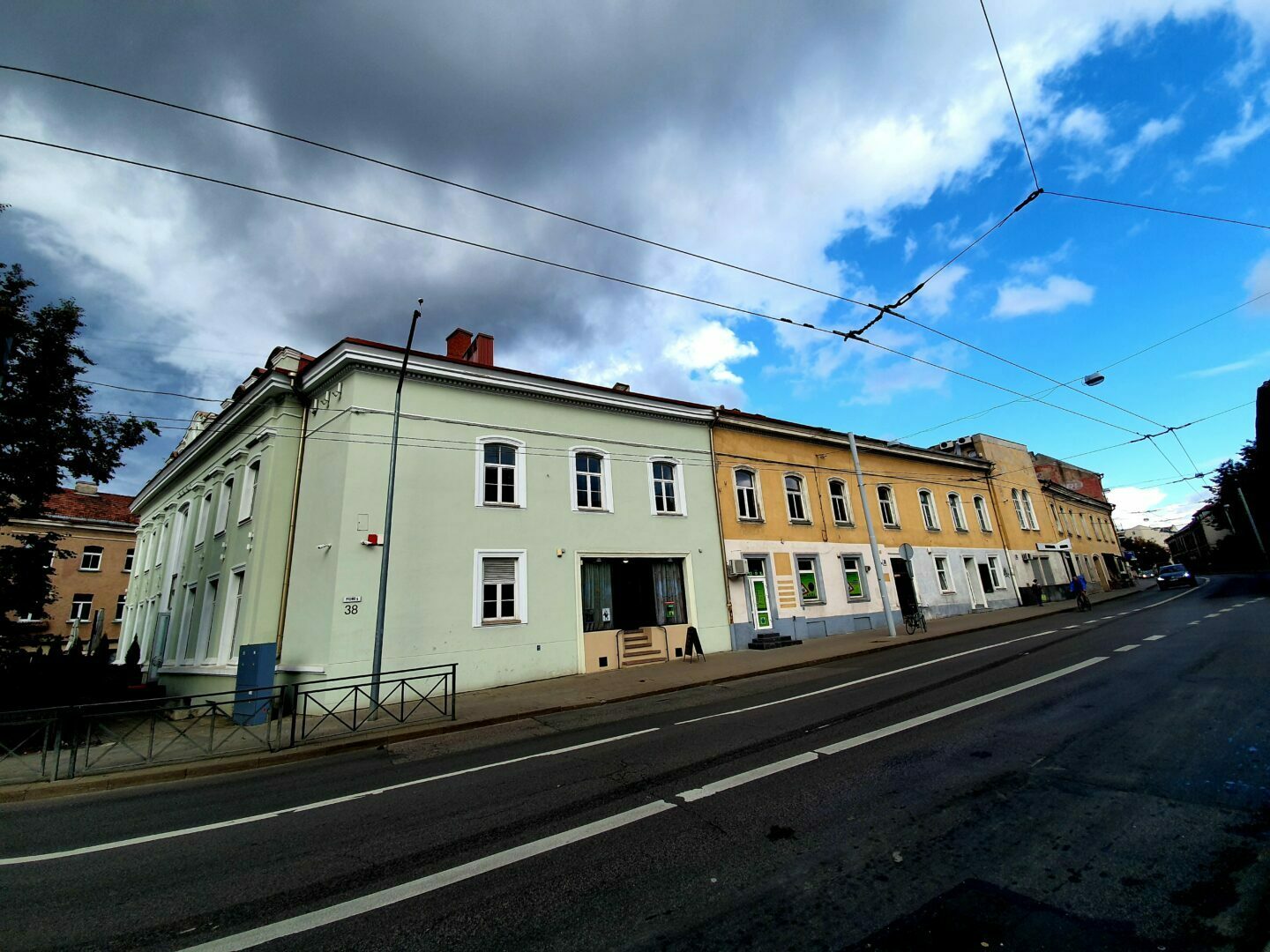
3. Memorial plaque for Tsemakh Shabad on the wall of the former Mishmeres Khoilim Choilim Hospital (current Mykolas Marcinkevičius Hospital, Kauno str. 7)
Dr Shabad worked in a hospital that was built in 1912. and It equipped just like the most recent and advanced foreign clinics at that time. The hospital had therapeutic, pediatric, tuberculosis, gynaecological, dermatological departments, a laboratory, a pharmacy, and outpatient and inpatient rooms. From 12 beds, it soon expanded to 55 and later to 70. The pharmacy sold 300 drug prescriptions daily. Not only Jews were treated at the hospital.
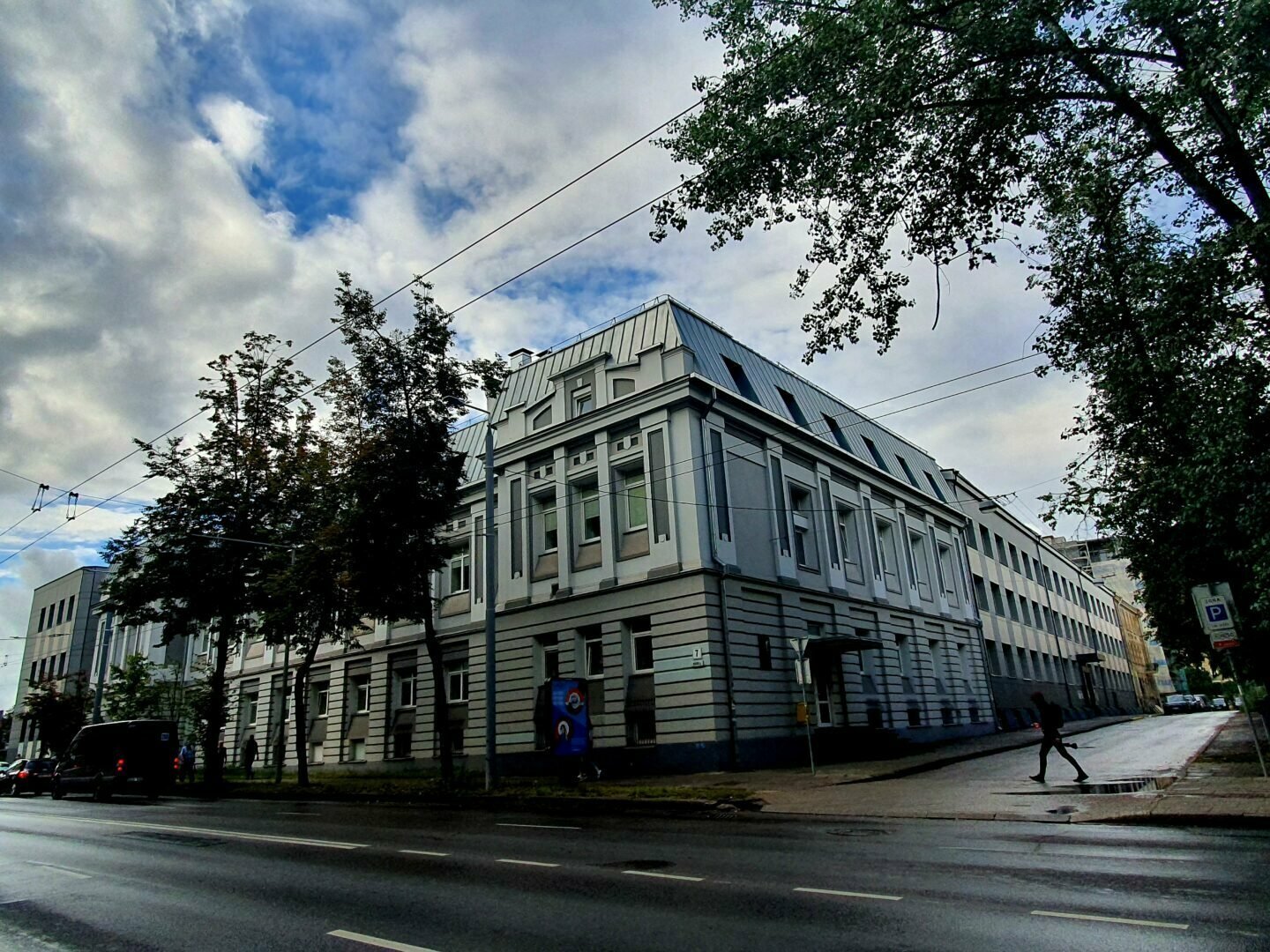
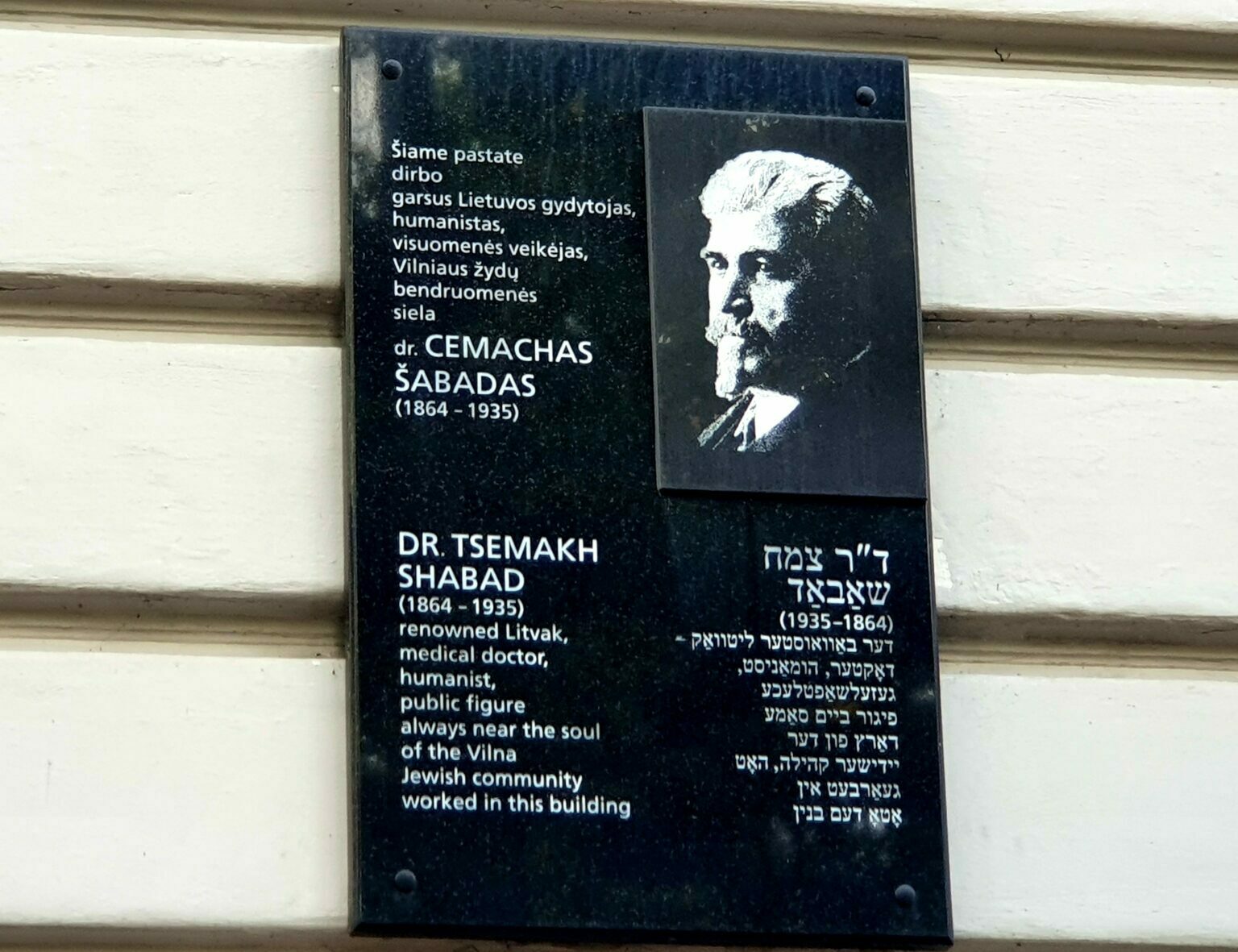
4. Memorial plaque for JIVO institute (A. Vivulskio str. 18)
The JIVO was an institute of Yiddish language and Jewish culture operating in Vilnius, co-initiated by Tsemakh Shabad. His son-in-law Max Weinreich became the director of this institute, which turned Vilnius into a Jewish cultural centre in Eastern Europe. A plaque was unveiled at the site where JIVO operated before the war.
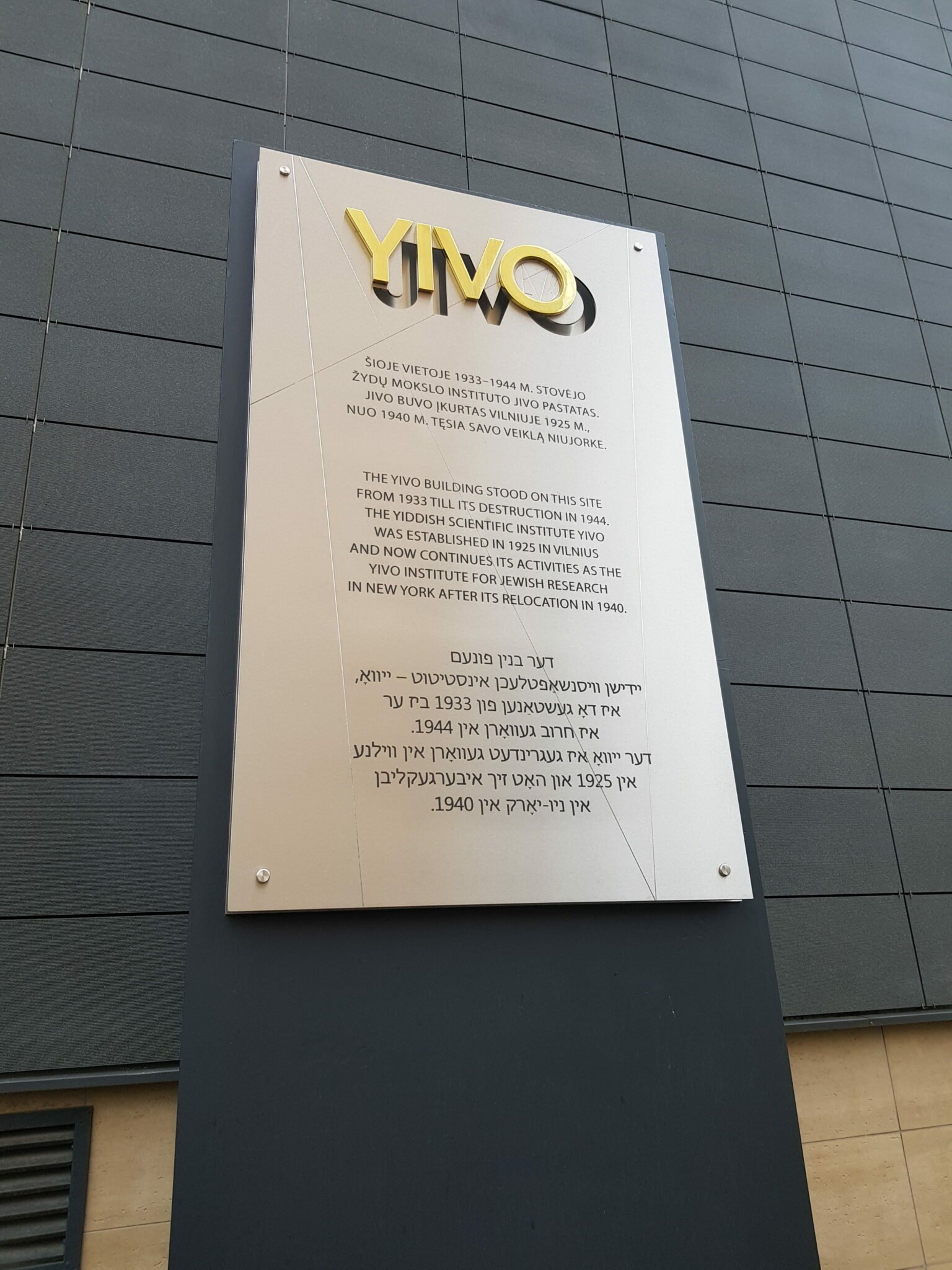
5. Dr. I. Bunimovičius’ house, where the organization JEKOPO worked (J. Basanavičiaus str. 5)
Dr Tsemakh Shabad was in charge of JEKOPO, an organization that supported Jews affected by war. This committee took care of unemployed Jews, orphans, refugee evacuations, reconstruction of rural Jewish farms, medical care, etc.
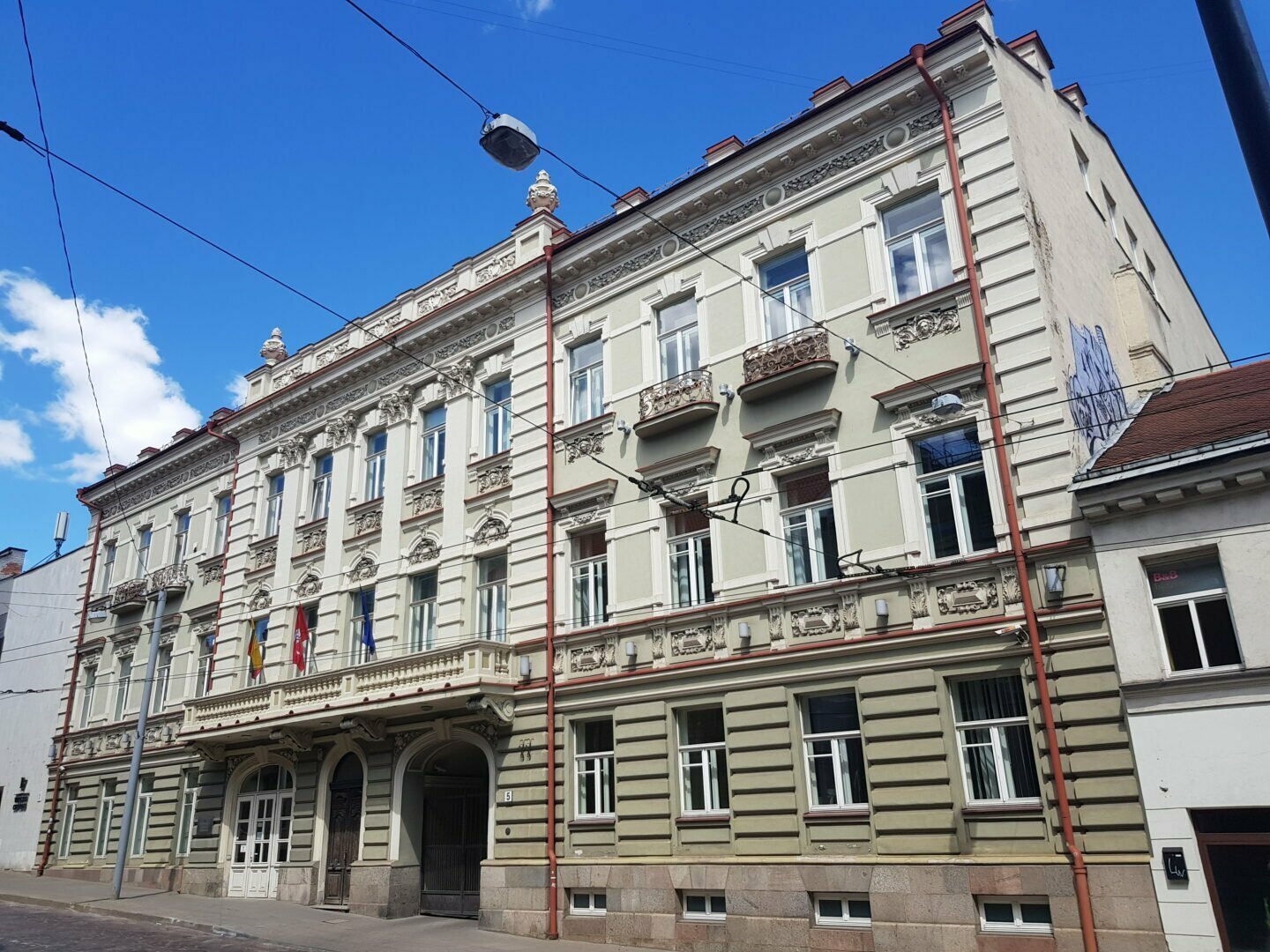
6. The last house of Tsemakh Shabad (Gedimino ave. 34)
The house belonging to a Jewish shelter now stands in a yard, which formerly was a street; once a continuation of the long Lukiškių Street. Here Tsemakh Shabad spent the final year of his life.
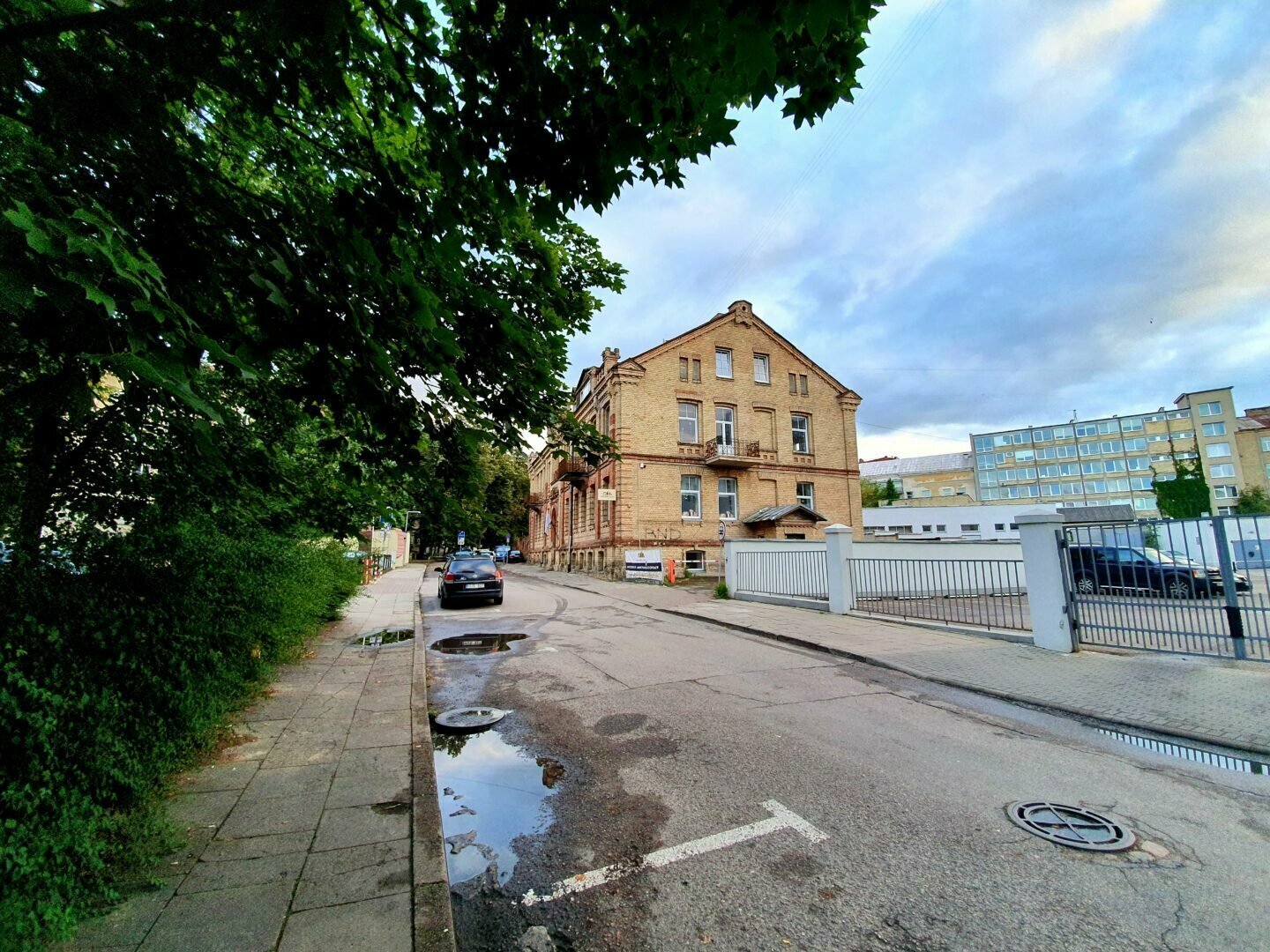
7. Užupis Jewish Cemetery (Krivių St. 123)
After the doctor’s death on January 20, 1935, a crowd of thousands accompanied him on his final journey. Tsemakh Shabad was buried in Užupis (Zareche) Jewish cemetery — a place where the most honourable townspeople were laid to rest.
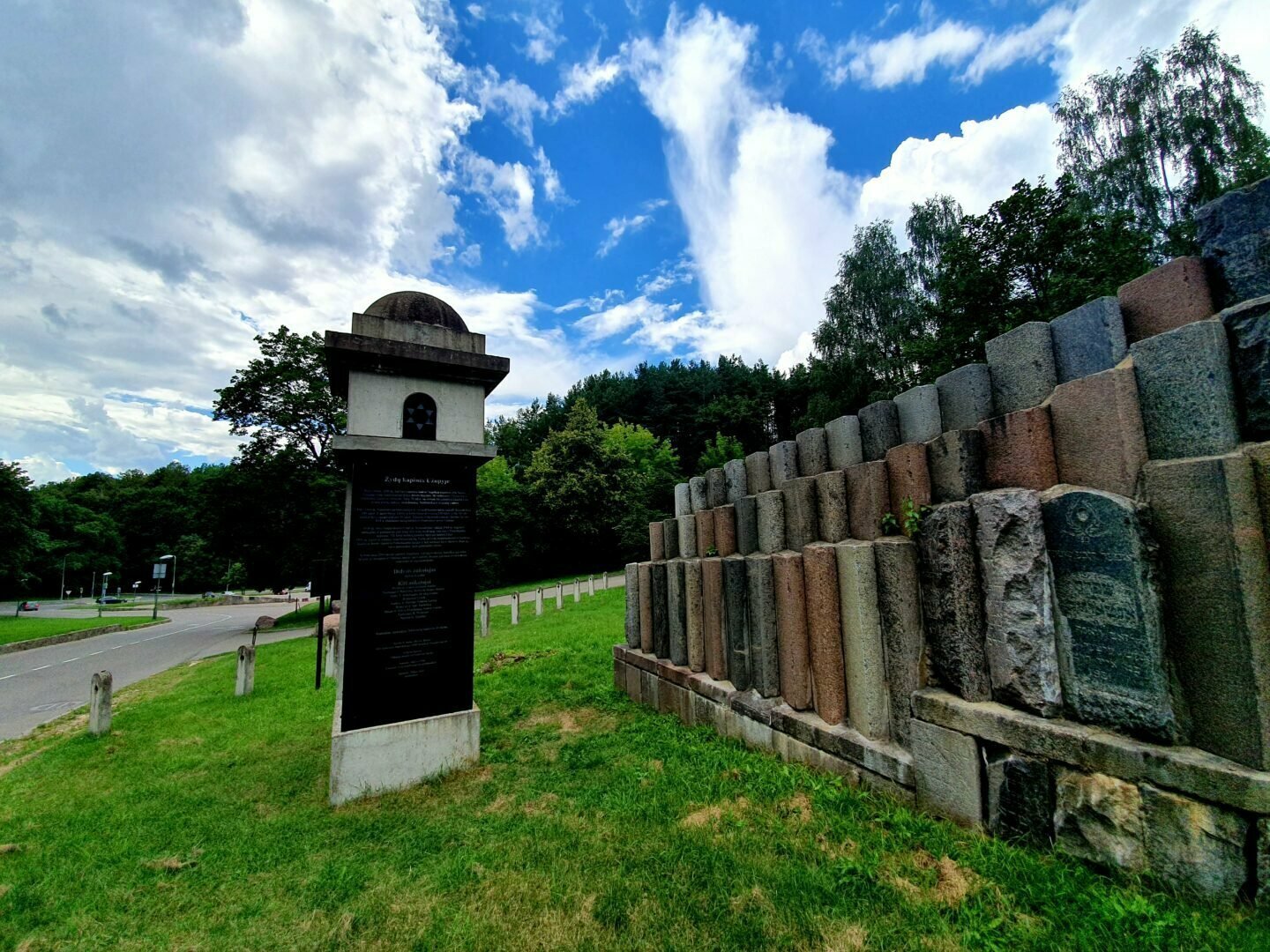
8. Sudervė Jewish Cemetery (Sudervė Road 28)
After the destruction of Užupis Jewish cemetery in the 1970s, the remains of Dr Tsemakh Shabad were reburied in Sudervė Jewish cemetery (5th sector, 8th row, 12th place). Together with the doctor’s son Yakov and daughter-in-law Sonia.
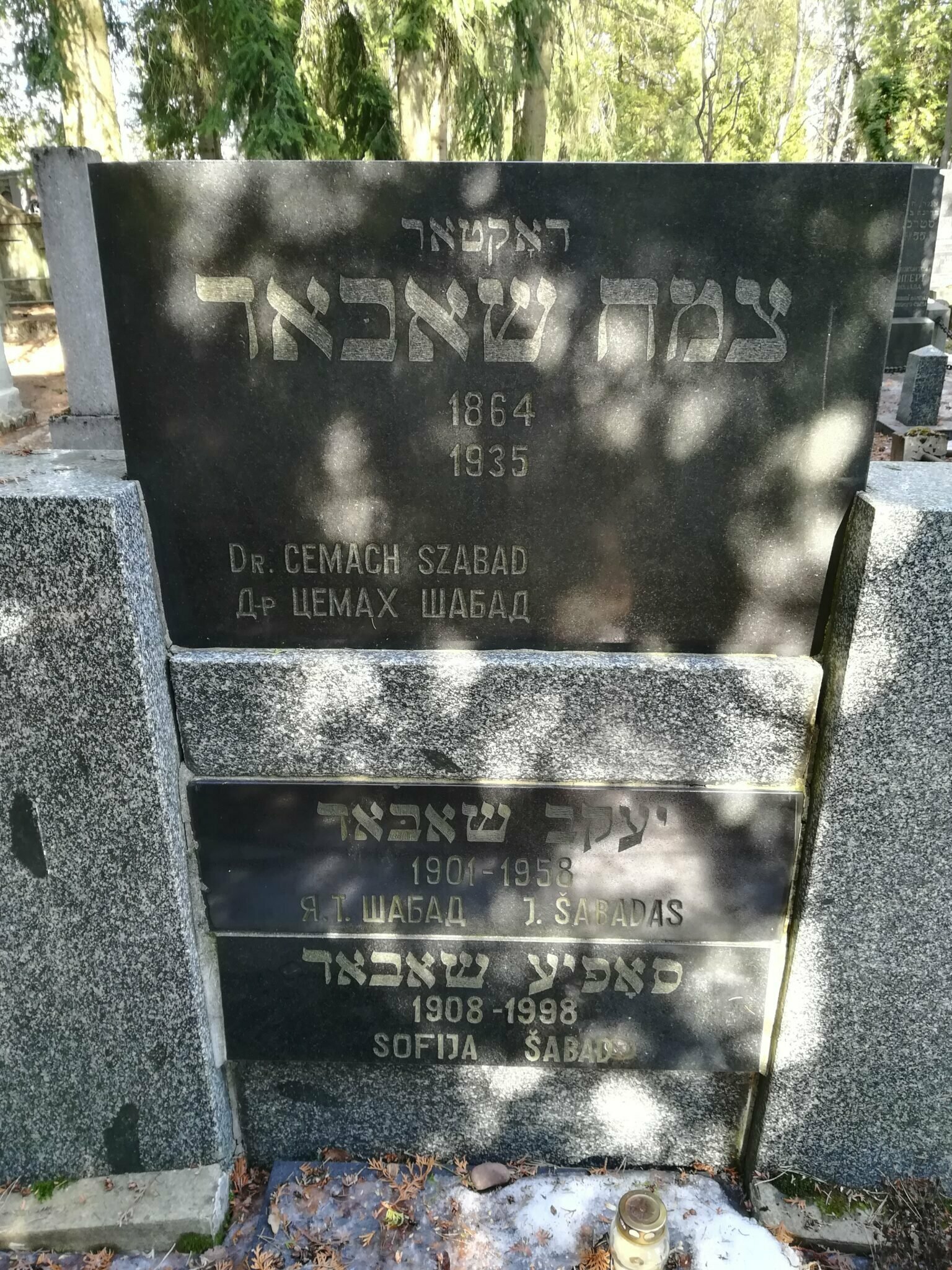
Author : Aušra Mikulskienė
Project partner: Vilnius City Municipality
